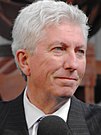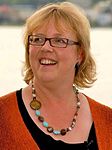41st Canadian federal election
|
|
||||||||||||||||||||||||||||||||||||||||||||||||||||||||||||||||||||||||||||||||||||||||||||||||
|---|---|---|---|---|---|---|---|---|---|---|---|---|---|---|---|---|---|---|---|---|---|---|---|---|---|---|---|---|---|---|---|---|---|---|---|---|---|---|---|---|---|---|---|---|---|---|---|---|---|---|---|---|---|---|---|---|---|---|---|---|---|---|---|---|---|---|---|---|---|---|---|---|---|---|---|---|---|---|---|---|---|---|---|---|---|---|---|---|---|---|---|---|---|---|---|---|
|
||||||||||||||||||||||||||||||||||||||||||||||||||||||||||||||||||||||||||||||||||||||||||||||||
|
|
||||||||||||||||||||||||||||||||||||||||||||||||||||||||||||||||||||||||||||||||||||||||||||||||
|
308 seats in the House of Commons of Canada 155 seats needed for a majority |
||||||||||||||||||||||||||||||||||||||||||||||||||||||||||||||||||||||||||||||||||||||||||||||||
| Opinion polls | ||||||||||||||||||||||||||||||||||||||||||||||||||||||||||||||||||||||||||||||||||||||||||||||||
| Turnout | 61.1% ( |
|||||||||||||||||||||||||||||||||||||||||||||||||||||||||||||||||||||||||||||||||||||||||||||||
|
||||||||||||||||||||||||||||||||||||||||||||||||||||||||||||||||||||||||||||||||||||||||||||||||

Popular vote by province, with graphs indicating the number of seats won. As this is an FPTP election, seat totals are not determined by popular vote by province but instead via results by each riding.
|
||||||||||||||||||||||||||||||||||||||||||||||||||||||||||||||||||||||||||||||||||||||||||||||||
|
||||||||||||||||||||||||||||||||||||||||||||||||||||||||||||||||||||||||||||||||||||||||||||||||
The 2011 Canadian federal election (formally the 41st Canadian general election) was held Monday, May 2, 2011, to elect members to the House of Commons of Canada of the 41st Canadian Parliament.
The writs of election for the 2011 election were issued by Governor General David Johnston on March 26. Prime Minister Stephen Harper advised the Governor General to dissolve parliament after the House of Commons passed a motion of non-confidence against the government, finding it to be in contempt of parliament. A few days before, the three opposition parties had rejected the government's proposed budget.
The Conservative Party remained in power, increasing its seat count from a minority to a majority government. The Liberal Party won the fewest seats in its history, and party leader Michael Ignatieff was defeated in his riding. The Bloc Québécois lost official party status for the first time since contesting general elections in 1993. Party leader Gilles Duceppe was defeated in his riding and subsequently resigned as leader. The New Democratic Party won the largest number of seats in its history, enabling it to form the Official Opposition for the first time. The Green Party elected its first member to the House of Commons with its leader, Elizabeth May, becoming MP for Saanich—Gulf Islands.
...
Wikipedia





